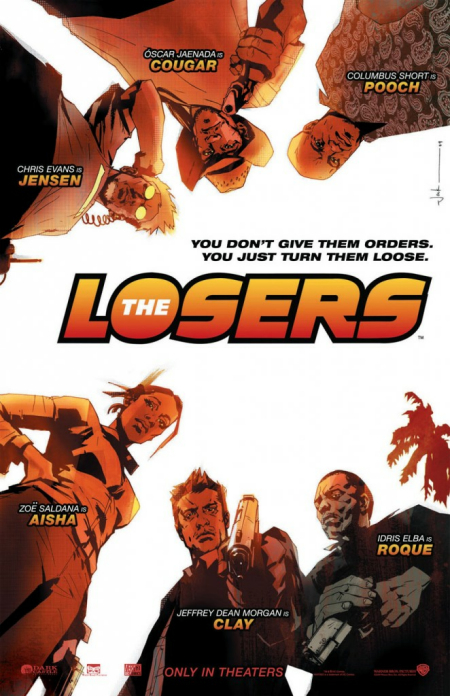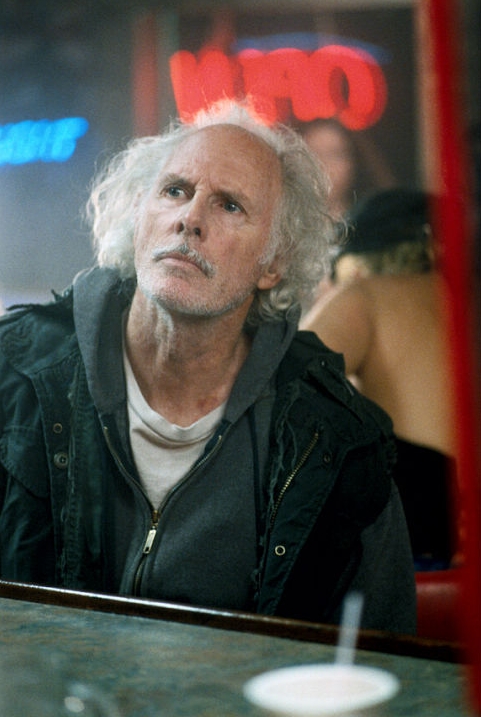
By now Jason Patric has become just about one of my favourite actors. He started out in the 80s as a heartthrob of sorts and made his name in stuff like The Lost Boys. But in 1990 he proved just what an excellent actor he is in a film that got little recognition at the time called After Dark, My Sweet. In it he starred beside Bruce Dern (another inductee in this list) as a worn out drifter who gave up a career in boxing and looked like it was maybe a good idea as he always seemed to have taken maybe just one too many shots to the head.
Here Patric creates a perfect film noir hero: a guy who we don't quite know what to make of or to what extent we can trust. Is he good, is he bad, does he have ulterior motives or is he really just a burned out bum? Here, as with every subsequent great performance, Patric creates characters out of his presence, not his ability as an actor. He plays things internally, letting notes stew just below the surface. He's the kind of cool, collected man who could burst out at any moment as if he seems to be folding in on himself in order to contain his hidden rage.
It's no surprise then that Patric would go on to star in one of the coldest, most uncomfortable scenes in all of American film in Neil Labute's Your Friends and Neighbours. Watch as Patric looks on, telling his story, completely oblivious to the fact that what is conveying is truly horrifying. This is a man without a pulse and Patric creates him, once again, through presence and not showmanship. He's just there, cold, heartless, empty (note- this scene is at the heart of the film so if you don't want to spoil it, and you shouldn't since it's a masterpiece, don't watch this)
Patric played it tough and gritty and the police drama Narc but it was in another underrated gem, My Sister's Keeper that he changed his tune. Once again, he relied on his presence, but this time he was the emotional heart of a film and every scene he was in was a keeper. Rarely have American films presented dads as so honestly what they are: caring, understanding, rationale and supporting if even only from the background. Watch what Patric's presence does to the trailer alone:
Patric belongs to the film's best scene (which appears at the 1:53 mark). Look at how he takes the scene, not by making himself the center of it, but by reacting to it; knowing what it needs and giving it nothing more than that though the look of the eyes, the slant of the mouth, etc. These are roles that many actors would take and go over-the-top with, but not Patric who is an actor who understands the concept of restraint. He finds the truth in a scene and leaves it at that.
It's no surprise then that Patric would go on to star in one of the coldest, most uncomfortable scenes in all of American film in Neil Labute's Your Friends and Neighbours. Watch as Patric looks on, telling his story, completely oblivious to the fact that what is conveying is truly horrifying. This is a man without a pulse and Patric creates him, once again, through presence and not showmanship. He's just there, cold, heartless, empty (note- this scene is at the heart of the film so if you don't want to spoil it, and you shouldn't since it's a masterpiece, don't watch this)
Patric played it tough and gritty and the police drama Narc but it was in another underrated gem, My Sister's Keeper that he changed his tune. Once again, he relied on his presence, but this time he was the emotional heart of a film and every scene he was in was a keeper. Rarely have American films presented dads as so honestly what they are: caring, understanding, rationale and supporting if even only from the background. Watch what Patric's presence does to the trailer alone:
Patric belongs to the film's best scene (which appears at the 1:53 mark). Look at how he takes the scene, not by making himself the center of it, but by reacting to it; knowing what it needs and giving it nothing more than that though the look of the eyes, the slant of the mouth, etc. These are roles that many actors would take and go over-the-top with, but not Patric who is an actor who understands the concept of restraint. He finds the truth in a scene and leaves it at that.










 I was watching Hal Ashby's emotionally effecting
I was watching Hal Ashby's emotionally effecting 

